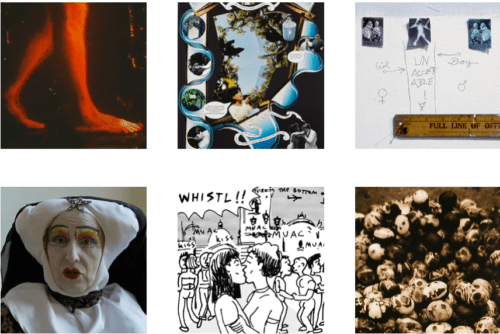Hence, the Israeli political establishment and the young men in the Israeli-ruled Palestinian towns and villages shared interests in developing Arab sports. Particularly since the early 1960s, Arab soccer clubs in Israel were spreading. Israeli authorities considered these clubs a useful antidote to nationalist consciousness and deliberately encouraged and supported them, as long as they played under the official umbrella of the Zionist sports organization.
Independent Arab sports organizations were banned and quickly demolished if they appeared. Interestingly enough, the initial tendency of the Israeli government was to encourage sports that required much less physical contact, such as table tennis, basketball, and volleyball, and to discourage contact sports, as in wrestling, boxing, and soccer. However, since they could not compete with the popularity of soccer, this policy was quickly abandoned and soccer games were disrupted only if the Palestinians attempted to establish autonomous sports institutions.
Under these circumstances, soccer became a safe ground for Arab men to display a combative, quasi-nationalist masculinity, which did not involve the risk of confrontation with state authorities. Paradoxically, by muting their expression of nationalist aspirations, or by relegating them to other spheres, Arab male soccer players were able to simulate a war against Jewish men. For Arab soccer fans in the late 1960s, identification with successful Arab soccer players, even if they played for Jewish teams, could reinforce masculinity and national self-respect. These identifications did not risk the potential sanctions involved in identifying with other heroes, such as the Fatah movement, which was beginning to gain momentum at exactly the same time.
Simultaneously, the relative importance of soccer for Ashkenazi Jewish men diminished, as the Zionist ethos promoted the military to the top of a hierarchy of masculinity. Under conditions of violent, tense, and continuous national conflict, the hegemonic ideals of Zionist masculinity were embodied in the combatant soldier, preferably an officer in a special unit. 1 Some scholars have emphasized the similarity of sports institutions and the military as sites of masculine competitiveness, and therefore one can assume that they might provide similar opportunities for men to rehabilitate their masculinity. 2 The growing popularity of soccer among Arab men is partly related to their exemption from Israeli military service and their inability to take the risk of fighting against the state.
The number of Arab soccer teams playing in the Israeli Football Association steadily increased until the late 1990s when their percentage peaked at 42 percent of the teams, more than double their relative share of the population (16 percent). Interestingly, another sport in which Arab men have not only been overrepresented but have even dominated is boxing – another sport which was “not recommended” for Arabs by the Israeli government in the early 1960s, and a sport which stretches the fine balance between violence and the regulation of violence in sports.
However, the explanation of soccer as a substitute for war is far from satisfying given the relative scarcity of violent outbreaks in Arab-Jewish encounters compared with other soccer competitions, and the absolute exclusion of Palestinian national symbols from the soccer stadium. While Jewish working-class soccer fans sometimes aspire to intensify the national conflict in soccer stadiums, Arab soccer fans are in a more ambiguous position. Soccer is indeed an opportunity to “beat the Jewish men” in a physical competition. But it is also a unique opportunity for Arab citizens to obtain integration and acceptance by the Jewish majority. It is a sphere that glorifies a meritocratic ethos and therefore offers players some protection from the discriminatory practices they face in many other spheres of Israeli society. Therefore, Arab fans manage their confrontation with Jewish fans with great care.
One consequence of this caution is that sexual and sexist symbolism gains prominence and overshadows nationalist connotations. For example, in one of the games I attended in 1999, the reaction of fans from Sakhnin (an Arab town) to anti-Arab curses by the fans of the Jewish team, Beitar Jerusalem, was the slogan “Sarah on the dick” (in Hebrew), referring to Sarah Netanyahu, the wife of the right-wing Prime Minister at the time, Binyamin Netanyahu, who was admired by Beitar’s fans. This cry was a symbolic attempt to sexually subjugate the political identity of Beitar fans, without attacking their ethno-national identity as Jews. In this way, Sakhnin fans did not deviate from the standard repertoire of non-Arab fans in Israel, and their political protest remained sublimated. It represented a wider attempt of the Arab fans to abate national tensions on the soccer field, or at least to leave these tensions unarticulated and inexplicit.
The presence of Arab soccer players in the Israeli soccer sphere provides some ironic anecdotes, such as when Arab soccer players are invited to the Israeli national team, namely, to represent Israel at the international level. Although some Jewish clubs have large circles of Arab fans (especially those teams which have traditionally included Arab players), victories of the Israeli national team are frequently perceived as provocations against the national and masculine pride of Arab men. 3 However, when an Arab player is playing for Israel, aspirations of integration gain prominence and the team is widely supported by Arab men. 4
Still, this support depends on the self-confidence of each man in his masculine identity. In a survey I conducted in 2000, I found that Arab men who described themselves as proud of their masculine identity had a higher tendency to oppose the Israeli national team, compared with other fans. The negative association between support for the national team and pride in male identity suggests that fans concerned about their masculinity do indeed consider the international encounter in sport an opportunity for degrading the masculinity of the Jewish male. The threat to masculine identity is tied to a great degree to the sense of degradation on the national level, and the two dimensions, gender and nation, mutually shape each other.
- Edna Lomsky-Feder and Eyal Ben Ari, “From ‘The People in Uniform’ to ‘Different Uniforms for the People’: Professionalism, Diversity and the Israeli Defense Forces,” in Managing Diversity in the Armed Forces: Experiences from Nine Countries, ed. Joseph Soeters and Jan Van der Meulen (Tiburg: Tiburg University Press, 1999).[↑]
- Eduardo P. Archetti, “Masculinity and Football: the Formation of National Identity in Argentina,” in Game Without Frontiers: Football, Identity, and Modernity, ed. Richard Giulianotti and John Williams (Aldershot: Arena, 1994); Varda Burstyn, The Rites of Men: Manhood, Politics, and the Culture of Sport (Toronto: University of Toronto Press, 1999).[↑]
- Muhammed Amara and Sufian Kabaha, A Split IdentityÑPolitical Division and Social Reflections in a Divided Village [in Hebrew] (Giv’at Haviva: The Institute for Peace Research, 1996).[↑]
- Tamir Sorek, Arab Soccer in a Jewish State [in Hebrew] (Jerusalem: Eshkolot, 2005).[↑]



